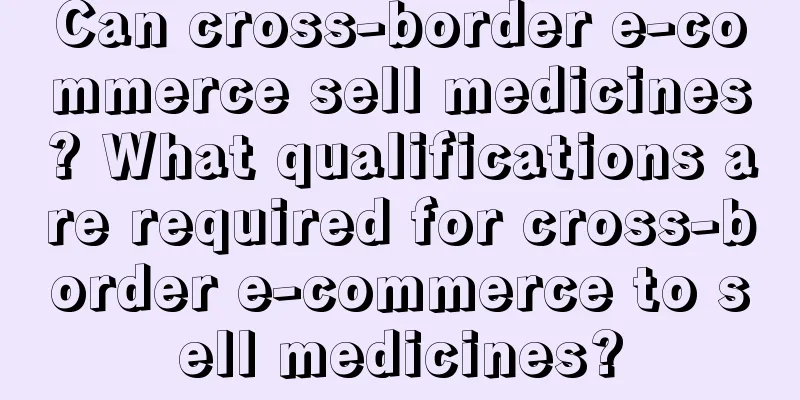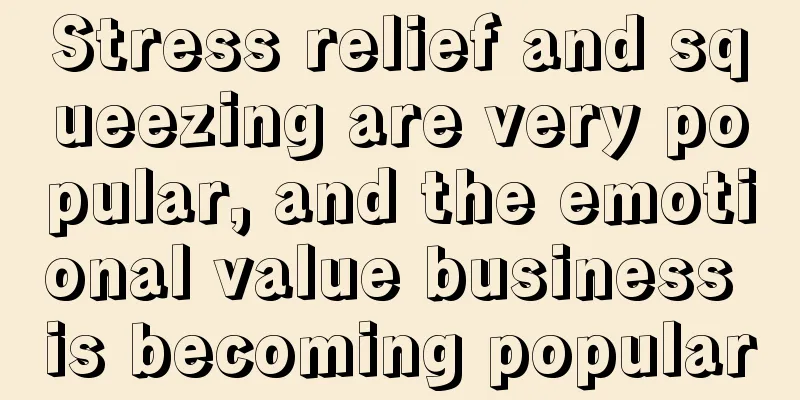Can cross-border e-commerce sell medicines? What qualifications are required for cross-border e-commerce to sell medicines?

|
Cross-border e-commerce has become part of global commerce, providing consumers with a convenient way to purchase international goods. However, when it comes to the sale of medicines, things are more complicated. This article will explore whether cross-border e-commerce can legally sell medicines, and what qualifications and regulations sellers need to meet. 1. Cross-border e-commerce and drug sales Cross-border e-commerce is a method that allows merchants to sell products and services to buyers in international markets. This sales model has been very successful in many fields, including fashion, electronics, beauty products, etc. However, the sale of pharmaceuticals is a different field because they have a direct impact on human health and life. Therefore, cross-border e-commerce sales of pharmaceuticals are usually subject to strict supervision and regulations. 2. What qualifications are required for cross-border e-commerce to sell medicines? In many countries, cross-border e-commerce sales of medicines need to meet a series of qualifications and regulations to ensure the quality, safety and legality of the products. Here are some key points that usually need to be considered: 1. Drug registration: In many countries, drugs must be registered and approved before they can be sold on the market. This usually requires registration through local health departments or drug regulatory agencies. Cross-border e-commerce sellers need to ensure that the drugs they sell have been legally registered and approved. 2. Licenses and Certificates: Sellers may need to obtain specific licenses or certificates to prove they are qualified to sell medicines. These licenses are usually issued by local health departments or regulatory agencies. 3. Quality control: Sellers need to ensure that the quality of the drugs meets relevant standards. This includes sourcing drugs from legitimate suppliers, maintaining correct storage conditions, and providing expiration dates and ingredient information for the drugs. 4. Safety: Drugs must meet safety standards to prevent adverse reactions and harm to patients’ health. Sellers need to ensure that the drugs they sell have not been tampered with or contaminated. 5. Accurate product information: Sellers need to provide accurate and clear product information, including usage, dosage, method of administration, etc. This helps ensure that patients use the medicine correctly. 6. Comply with international regulations: Sellers need to comply with cross-border trade regulations, including customs and tax regulations. International transportation of medicines is usually strictly regulated. |
<<: Alibaba International Station launches "Plan S"
>>: What does Amazon Web Services mean? What does it do?
Recommend
Amazon opens Buy with Prime service to all merchants in the US
Amazon recently announced that it will open its Bu...
Advertisements in the comment area are online, and the video account is "catching on"
The recent intensive updates to video account prod...
The "Little Princess of Anfu Road" who owns ten apartments in Shanghai has become an Internet celebrity...
Is the internet celebrity "Anfu Road Little P...
How to film a real "business war"
Creators of business war dramas and professional d...
What are the requirements for applying for a store on Shopee? Detailed introduction
There are many cross-border e-commerce platforms, ...
An inventory of Xiaohongshu's marketing methodologies over the years! Are these methods really useful?
This article reviews Xiaohongshu's marketing m...
It turns out that the Xiaohongshu account has no traffic because of this!
There are always many problems in operating Xiaoho...
The basis of Douyin's sales is diligence
As a new e-commerce model, Douyin is becoming more...
Can the “9.9 yuan” in the coffee market last?
In this summer, many consumers have observed that ...
When it comes to understanding young people’s emotions, can brands not compare to temples?
Recently, temples have gradually become a popular ...
Which Shopee site is doing well? Market analysis of each site
Many cross-border e-commerce platforms are divided...
Do individual sellers make money on eBay? How do they make money?
There are many cross-border e-commerce companies n...
What does eBay mean? What are the advantages of eBay?
In fact, everyone has heard a lot about the eBay p...
How many days does Shopee take to ship goods in stock? FAQs on Shopee delivery time
After the buyer places an order, the Shopee seller...
The revelation of the Miaoya camera
In recent days, Miaoya Camera has become popular, ...









